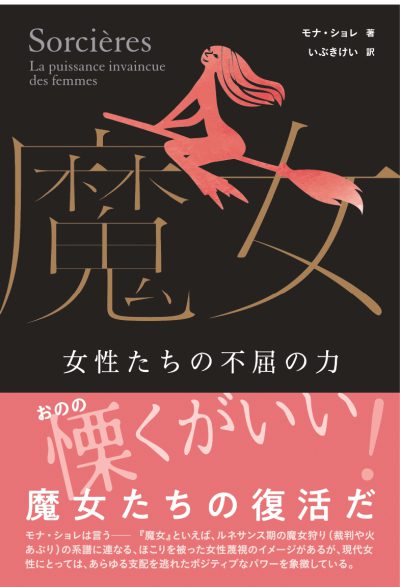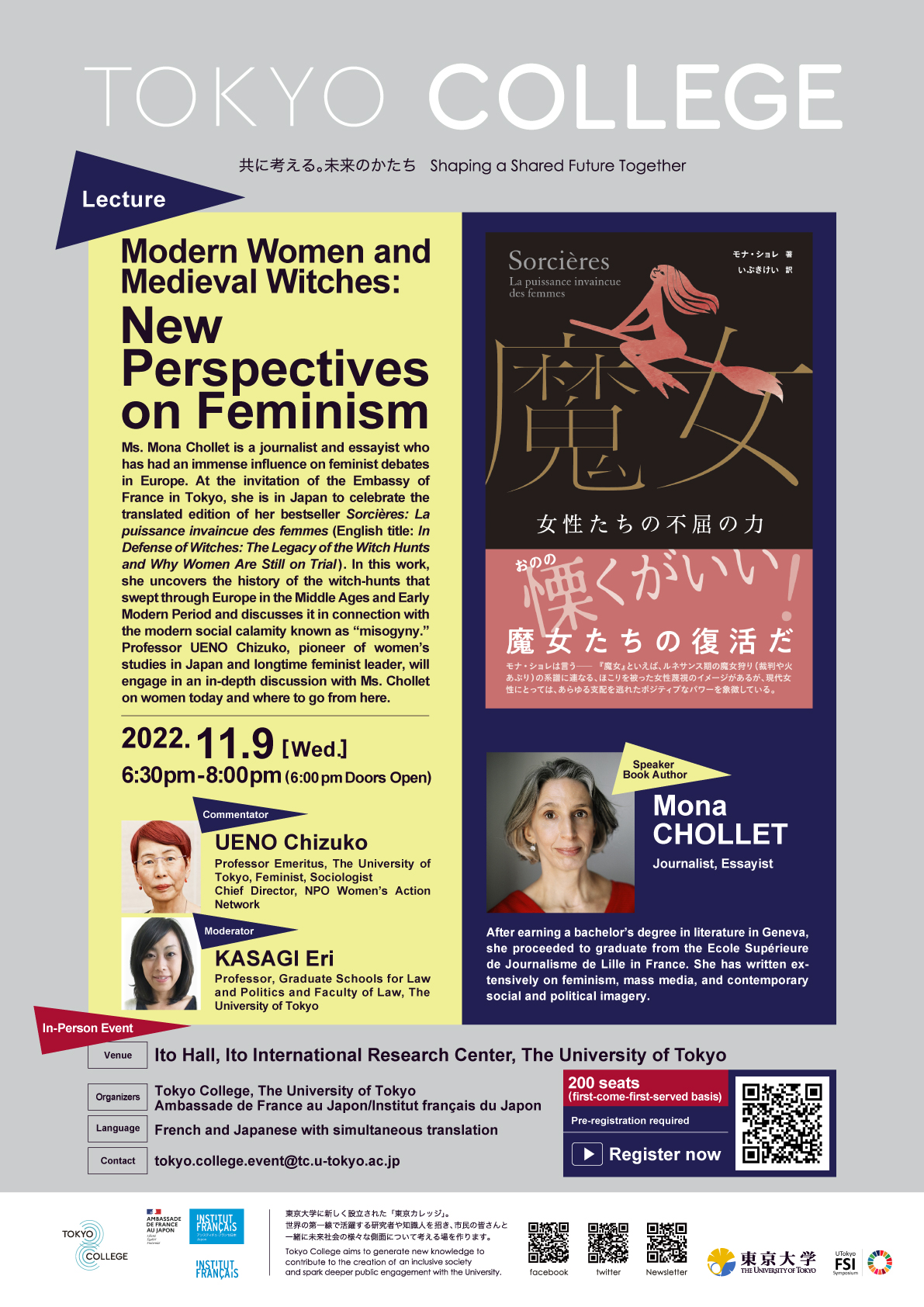【Cancel】Modern Women and Medieval Witches: New Perspectives on Feminism

| Date(s) | 【Cancel】Wednesday, 9 November 2022, 6:30-8:00 pm (Doors open: 6:00 pm) |
|---|---|
| Venue |
【Cancel】Ito Hall, Ito International Research Center, The University of Tokyo Register > https://form.qooker.jp/Q/auto/ja/tokyocollege1109/reg/ |
| Registration | Pre-registration required (200 seats - First come, first served) |
| Language | French and Japanese with simultaneous translation |
| Abstract |
Ms. Mona Chollet is a journalist and essayist who has had an immense influence on feminist debates in Europe. At the invitation of the Embassy of France in Tokyo, she is in Japan to celebrate the translated edition of her bestseller Sorcières: La puissance invaincue des femmes (English title: In Defense of Witches: The Legacy of the Witch Hunts and Why Women Are Still on Trial). In this work, she uncovers the history of the witch-hunts that swept through Europe in the Middle Ages and Early Modern Period and discusses it in connection with the modern social calamity known as “misogyny.” Professor UENO Chizuko, pioneer of women’s studies in Japan and longtime feminist leader, will engage in an in-depth discussion with Ms. Chollet on women today and where to go from here. |
| Speaker Profile |
Lecturer: Mona Chollet Born in 1973 in Geneva, Switzerland. Journalist, Essayist. After earning a bachelor’s degree in literature in Geneva, she proceeded to graduate from the Ecole Supérieure de Journalisme de Lille in France. She has written extensively on feminism, mass media, and contemporary social and political imagery.
Commentator: Prof. UENO Chizuko Professor Emeritus, The University of Tokyo, Feminist, Sociologist. Chief Director, NPO Women’s Action Network. A pioneer in the field of women’s and gender studies. Her research also addresses elder care and caregiving. She is the author of many books, including Kea no shakaigaku (‘The Sociology of Care’) (Ohta Publishing, 2011), Ohitorisama no rōgo (‘Living Alone in Old Age’) (Houken, 2007), and Feminizumu ga hiraita michi (‘Doors Opened by Feminism’) (NHK Publishing, 2022). She founded the NPO Women’s Action Network (WAN) in May 2019 and assumed its presidency in April 2011.
Moderator: Prof. KASAGI Eri Professor, Graduate Schools for Law and Politics and Faculty of Law, The University of Tokyo; Research Fellow, Centre national de la recherche scientifique (France) |
| Organized by | Tokyo College, The University of Tokyo | Ambassade de France au Japon/Institut français du Japon |
| Contact | tokyo.college.event@tc.u-tokyo.ac.jp |
| Notice regarding COVID-19 prevention measures |
We kindly request your cooperation in observing the following precautions against the spread of COVID-19 at this event. - Wear a mask at all times and ensure proper cough etiquette. - Disinfect hands at entrance and submit to a temperature check. - Maintain social distance. - Use appropriately marked seats. - Refrain from conversation inside the venue. - If you suddenly feel ill, notify nearby staff and follow their instructions. Please refrain from attending the event if any of the following conditions apply: (a) You have a temperature of greater than 37.5°C (or more than 1° higher than your usual bodily average); (b) You have recently entered the country and are subject to a set period of self-quarantine as determined by the government; (c) You have come in close contact with a person to whom (b) applies. In addition, please be aware that personal information of event participants including names and contact information may be provided to public institutions (e.g., public health centers) depending on the status of infections. Thank you for your understanding. |

















